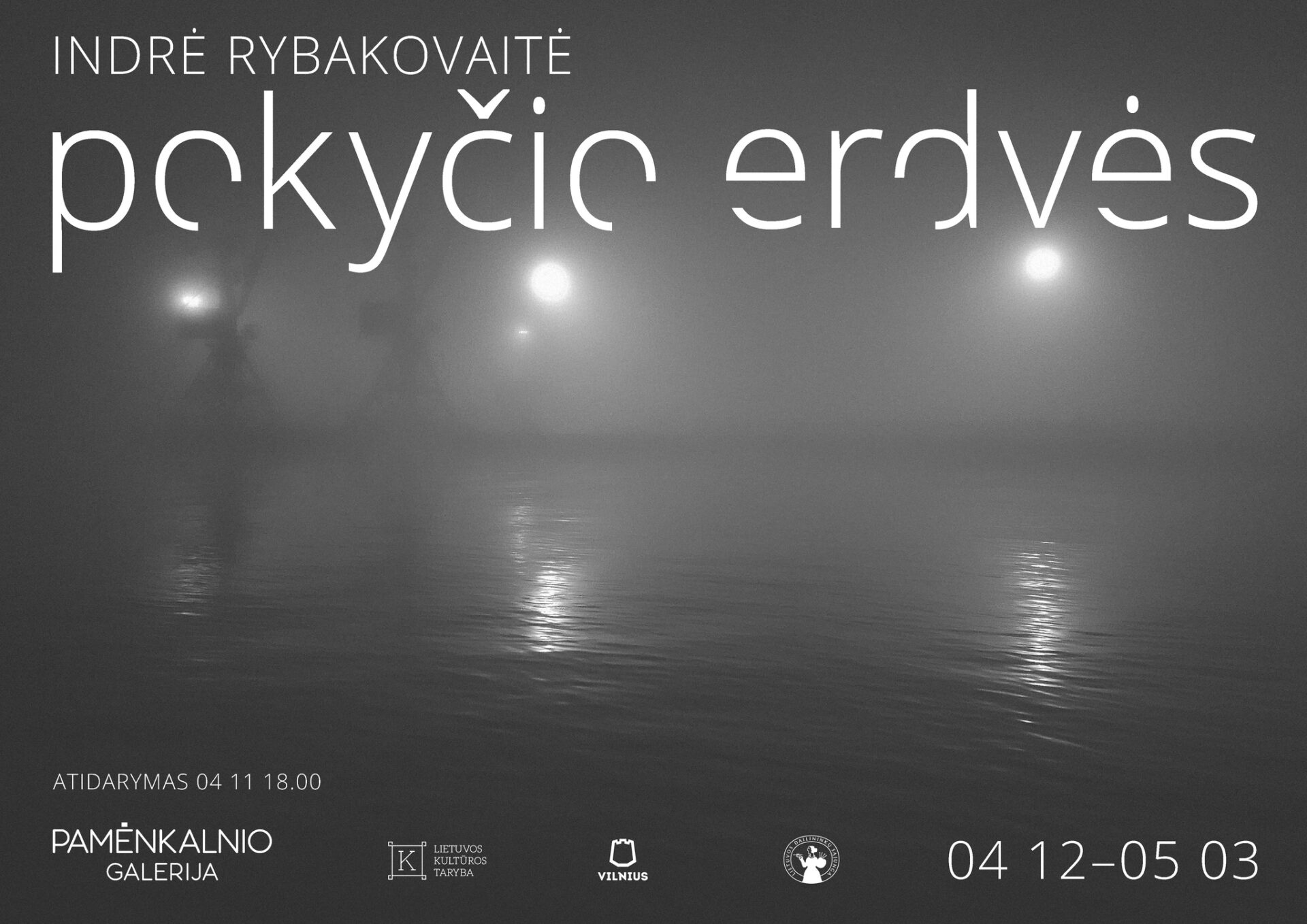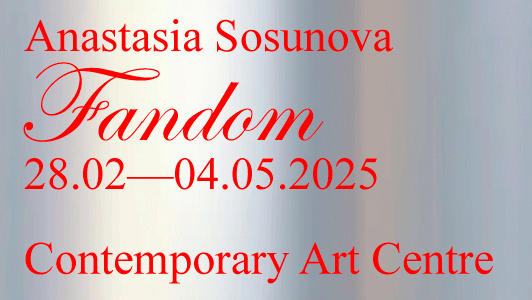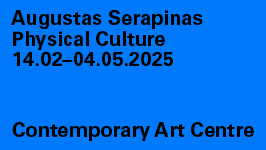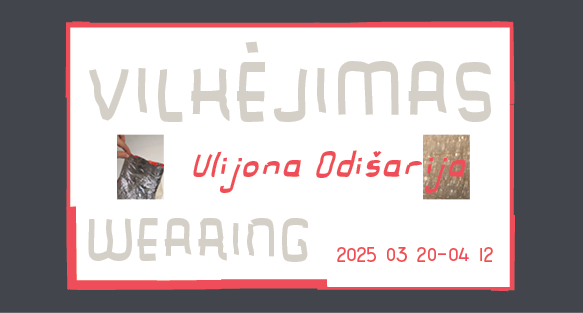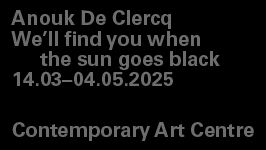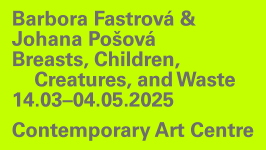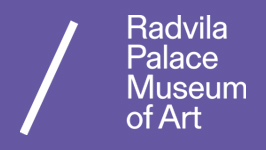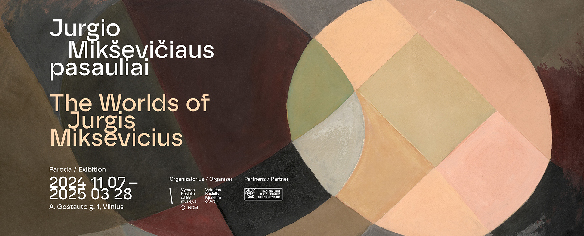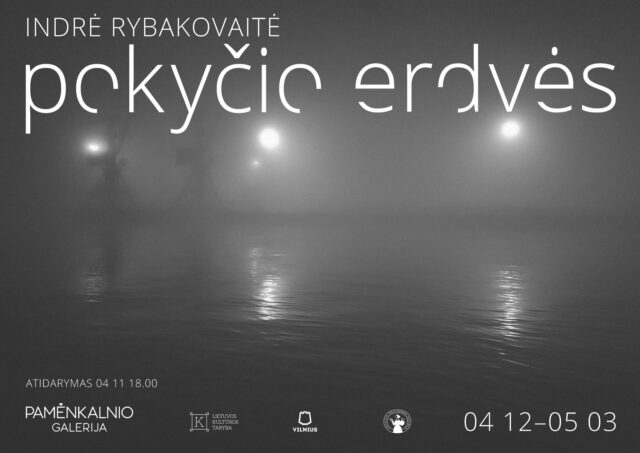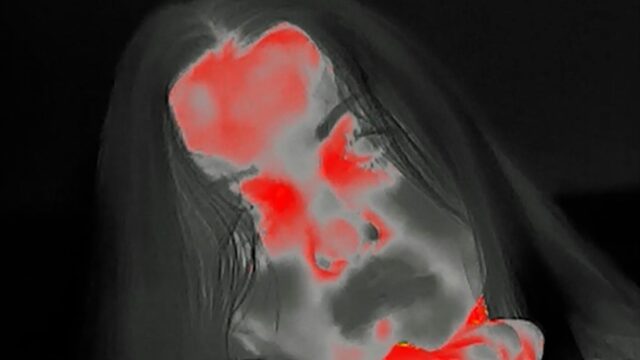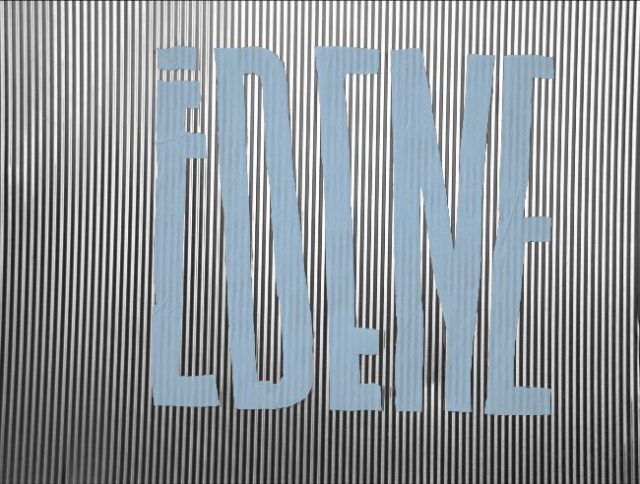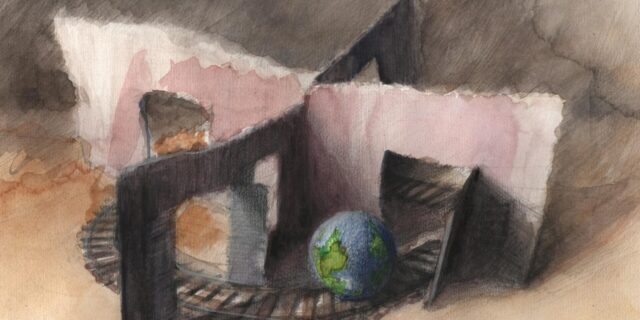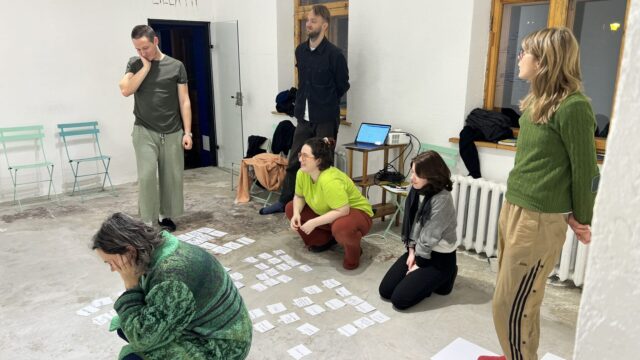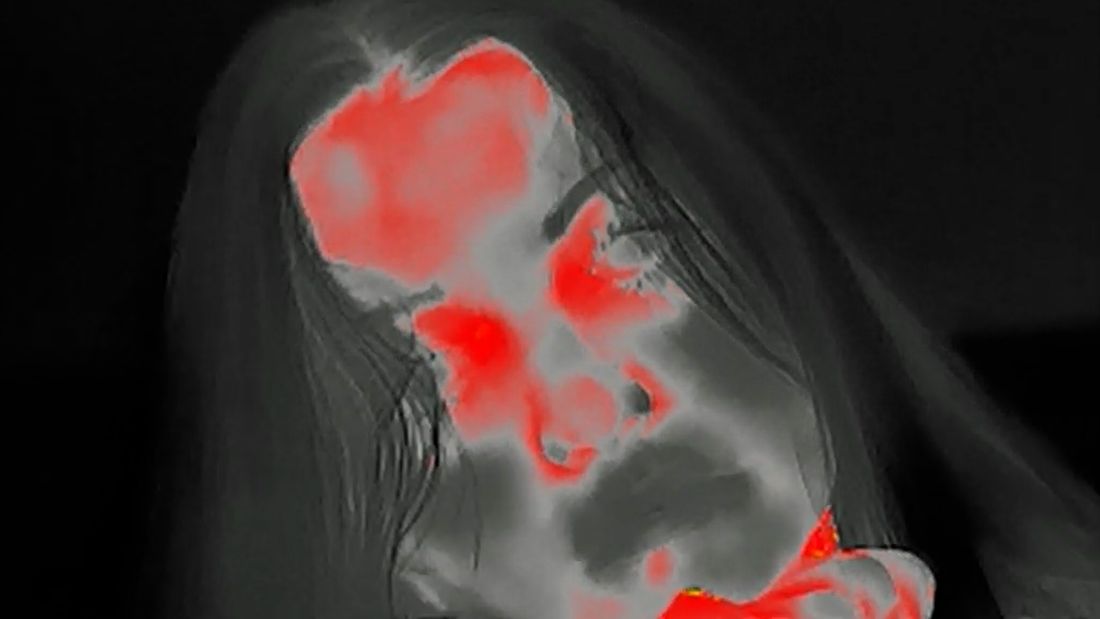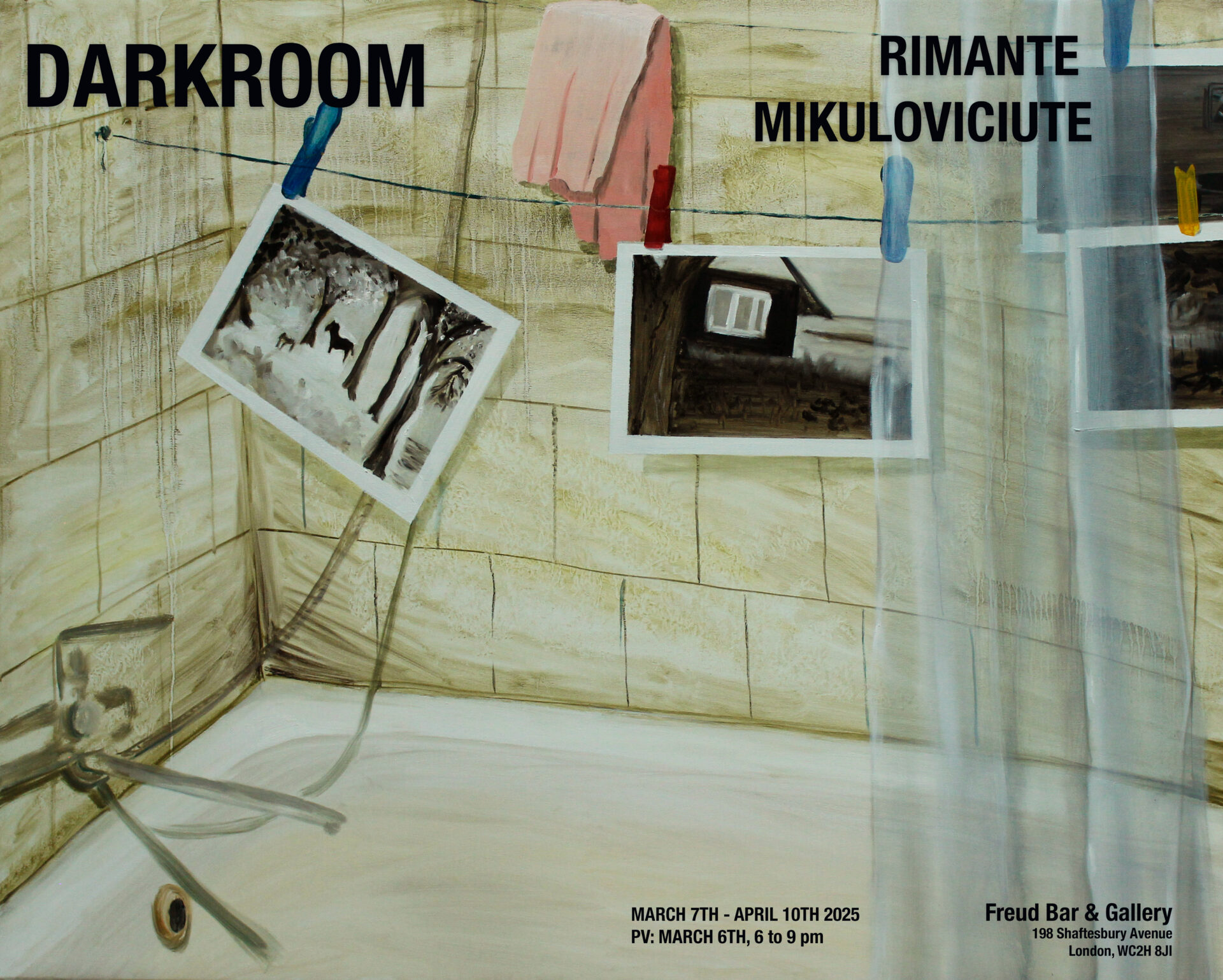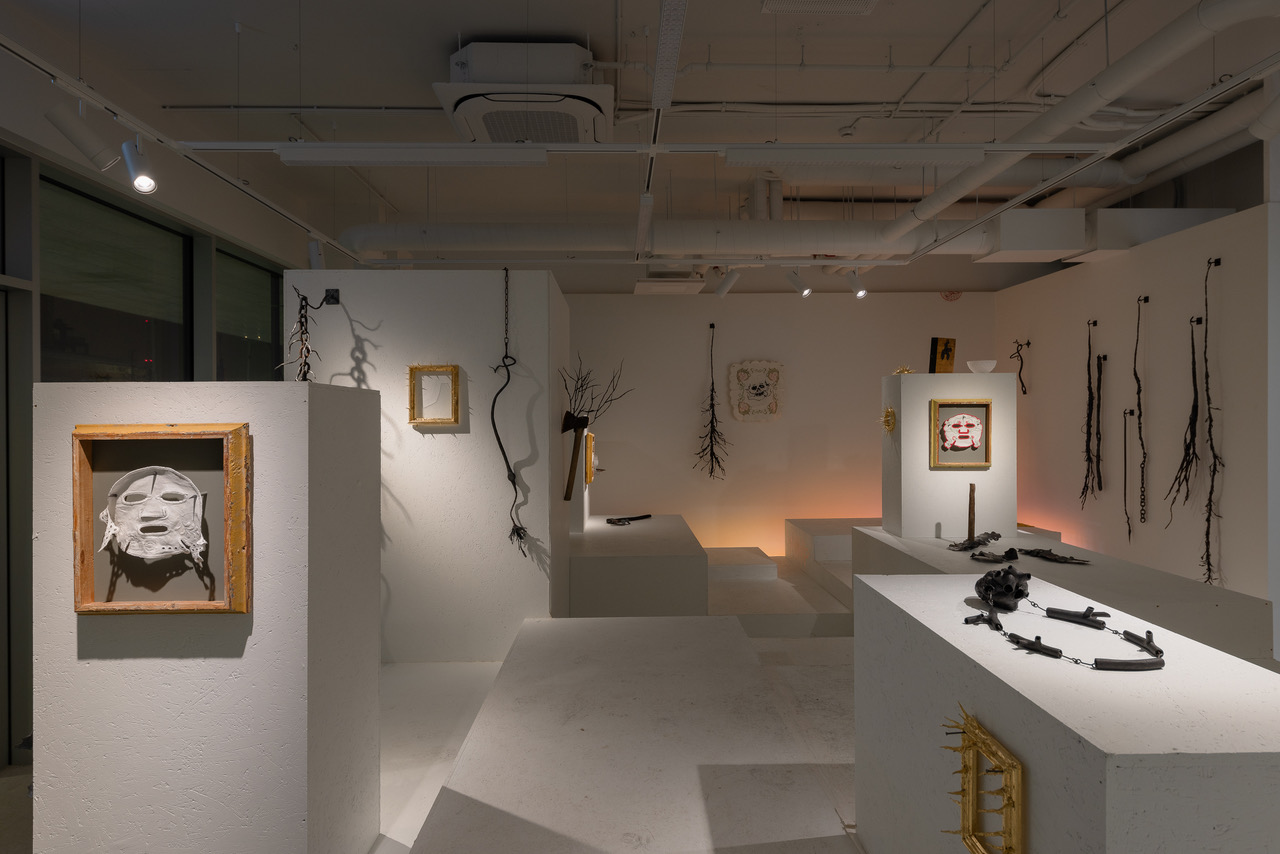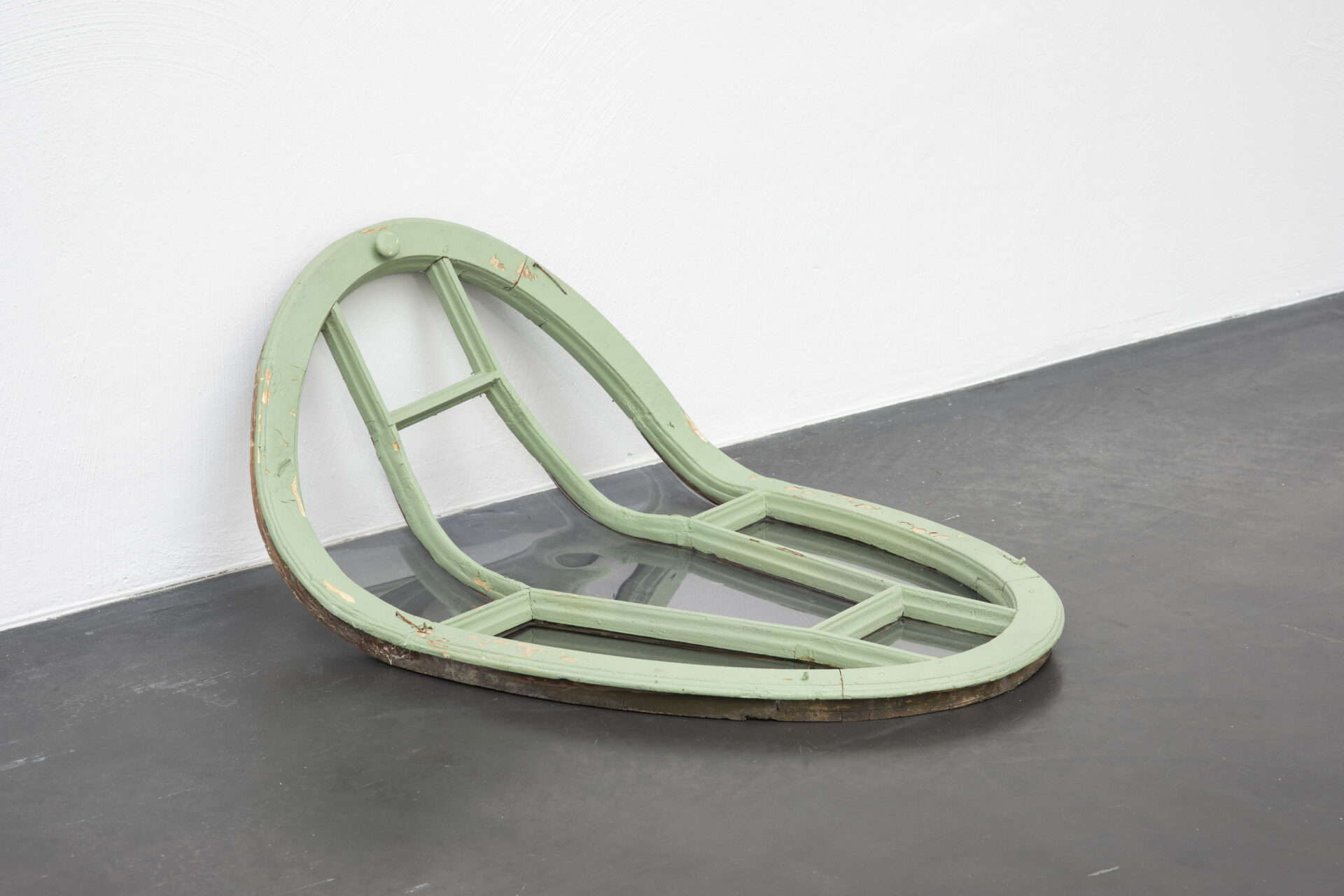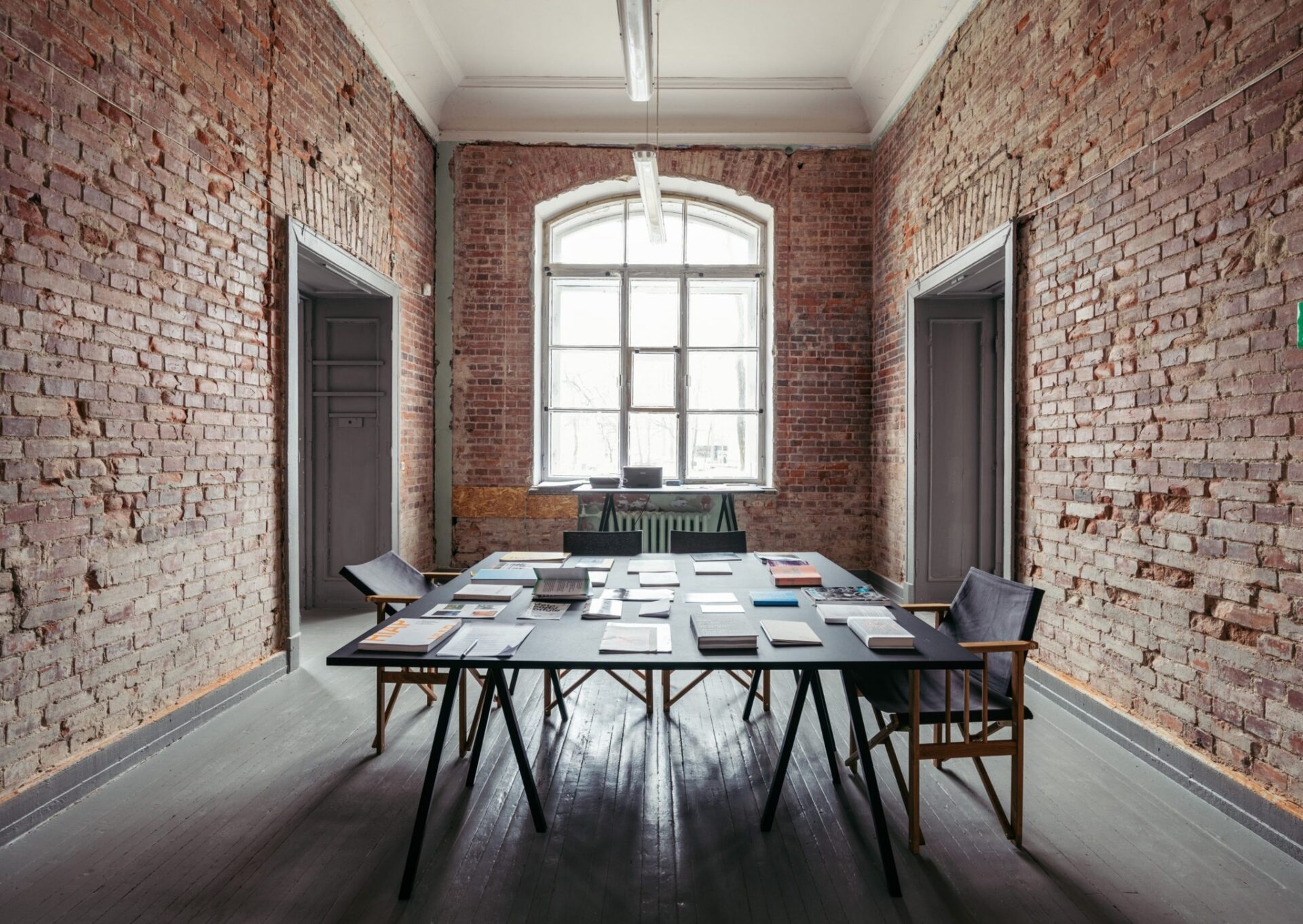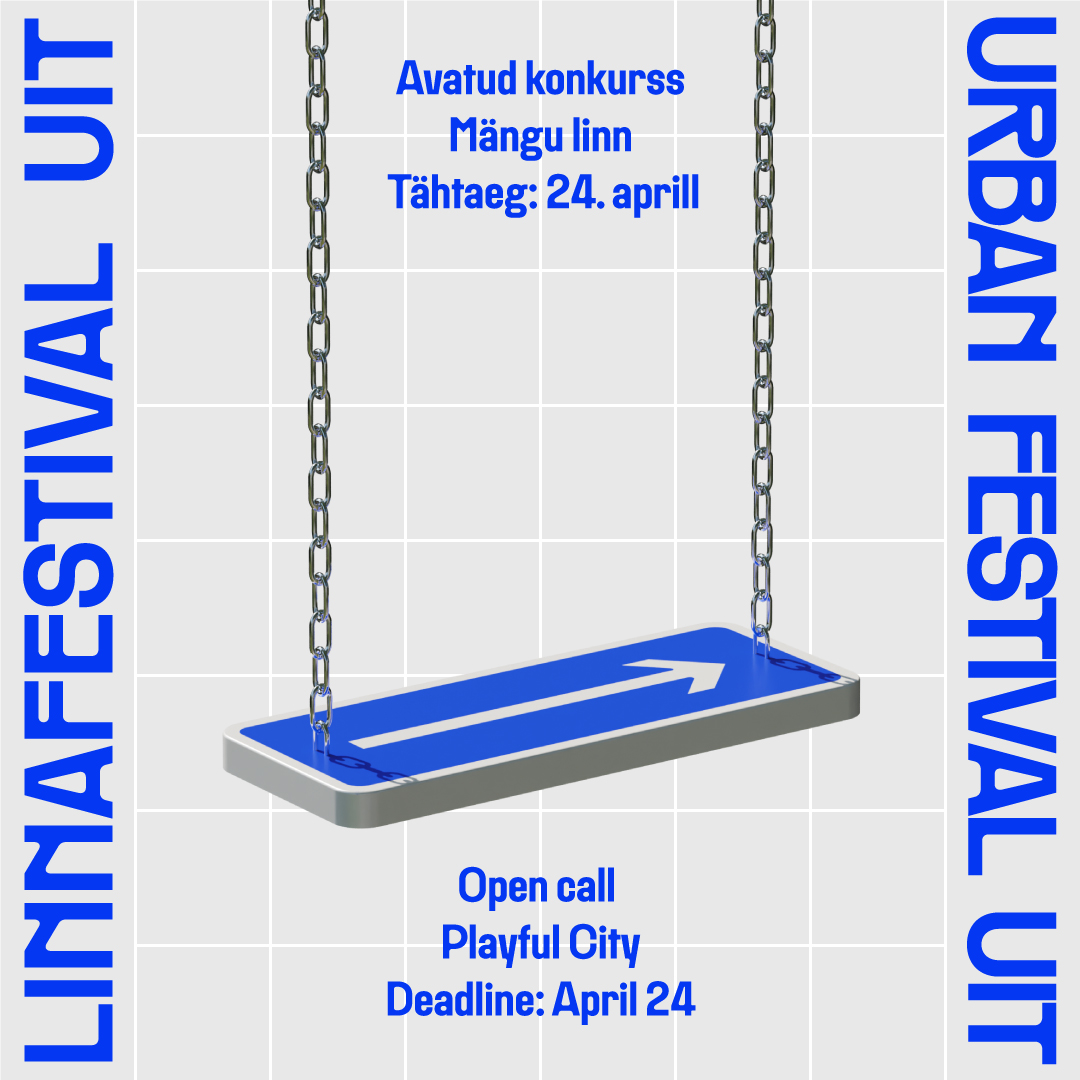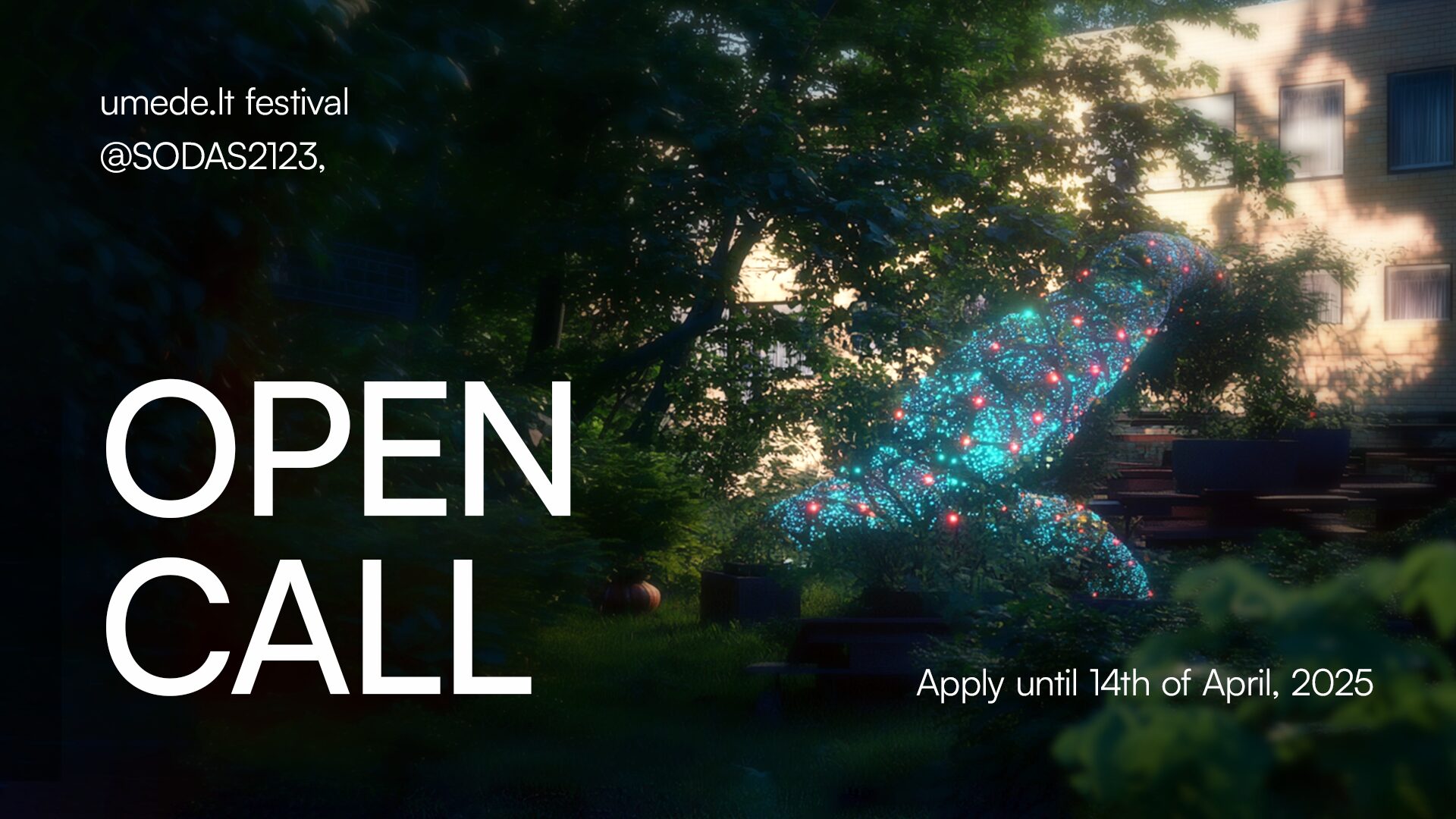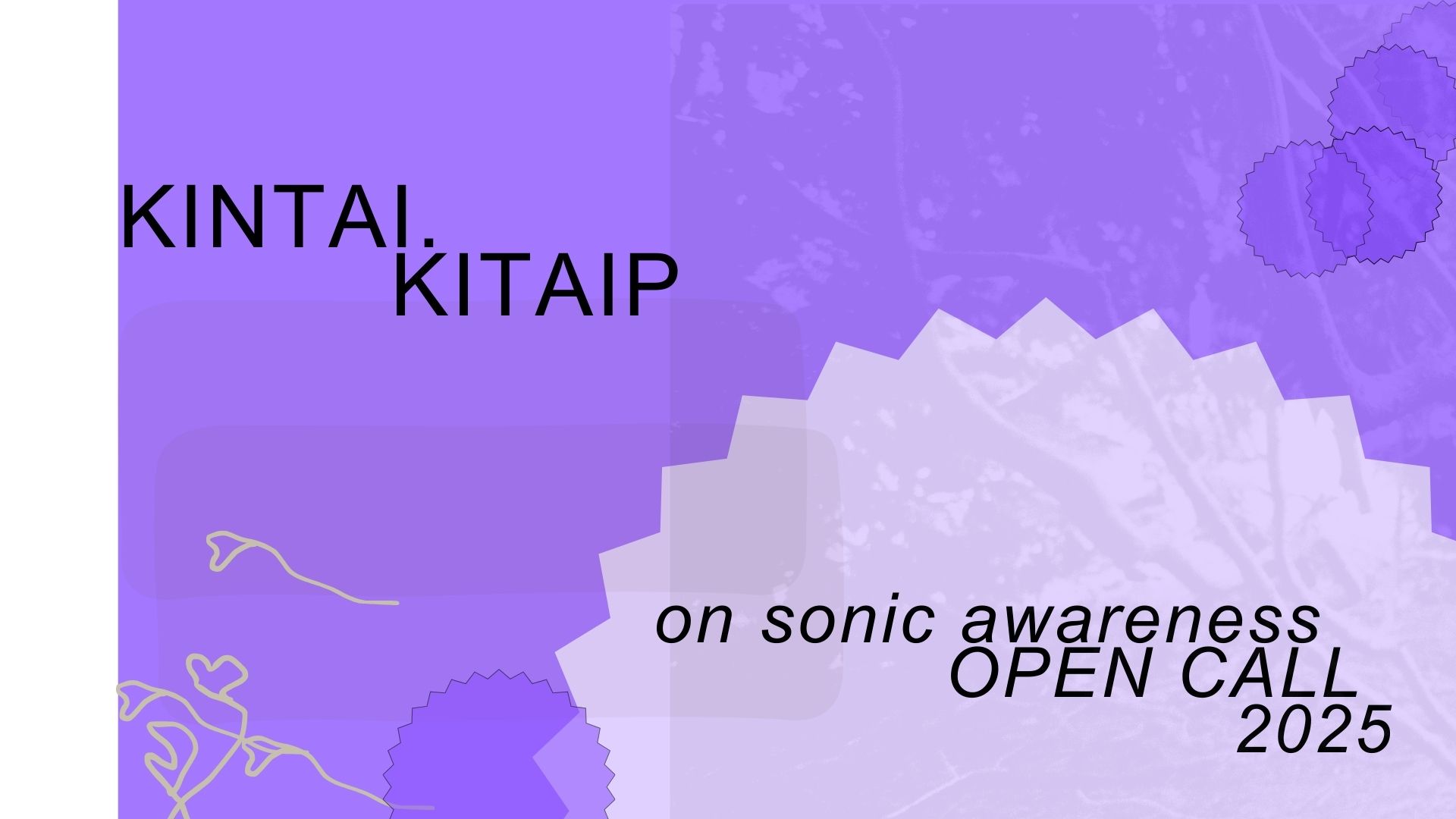The exhibition ‘Places of Change’ by Indrė Rybakovaitė is opening on the 11th of April at 6 PM at Pamėnkalnio Gallery (1 Pamėnkalnio St., Vilnius). The exhibition will run until the 3rd of May.
The idea for the series of paintings, Places of Change, was born out of the observation of the relevant contemporary context – the changing places, which commemorate the history of the 20th century and are slowly losing the last living witnesses, as well as the war in Ukraine, during which the traumatic architecture and locations have acquired a different psychological charge. The author notices that it is in these spaces, which have changed functionally or institutionally, that she experiences a kind of state of the uncanny (in German: Unheimliche). Uncanny is a psychological state characterised by insecurity about oneself and what one is experiencing, a feeling of derealisation or alienation – a shaken faith in the familiar. Uncanny is not an immediate terror – rather, it is a sense of dread. It is difficult to define it unequivocally because it is a liminal state: between the familiar and the strange, the living and the artificial, the material and the ephemeral, the past and the present, something repulsive and yet intriguing, the existing and the absent, thought and feeling.
The artist realised that to experience the uncanny, she had to travel and physically explore her surroundings. In this context, the practice of psychogeographical travel seemed close to her. Psychogeography is a term coined by Guy Debord and applied by contemporary writers, geographers and artists to describe how specific spaces affect human emotions and behaviour. Over the three years of the project, Rybakovaitė visited around twenty places of change: military, technical and historical museums, authentic sites that have been turned into memorial museums, spaces where authentic objects have been brought in, and spaces where military architecture is naturally integrated into the landscape while the role of the institution is minimal.
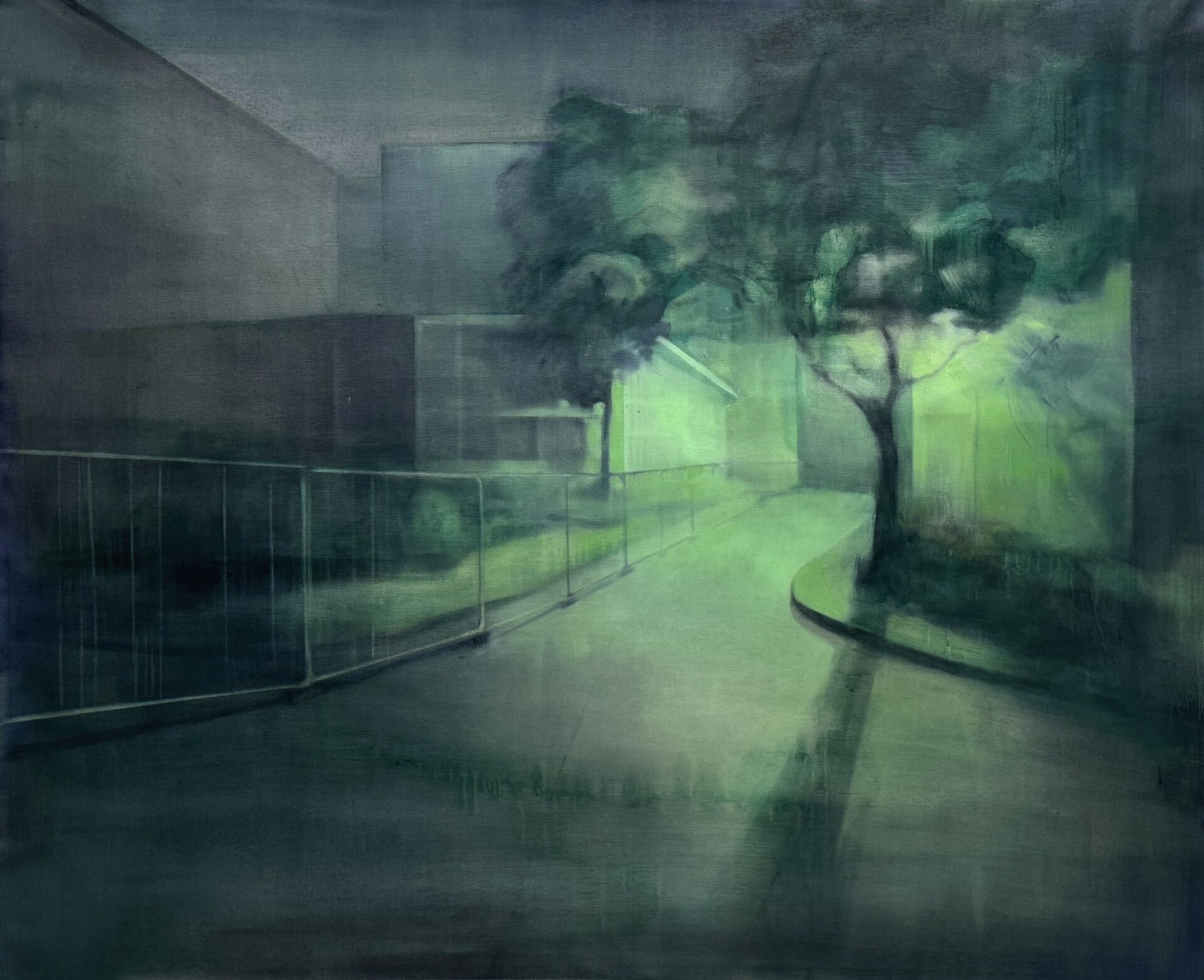
Indrė Rybakovaitė. STASI MUSEUM IN BERLIN. Oil on canvas, 130 x 160 cm, 2024
Indrė Rybakovaitė: “In my research on what determines the experience of space, I have found that it is not just the hard-to-articulate aspects such as the spirit of place (genius loci), the atmosphere created by weather and time of day, the legends and stories passed on by word of mouth, people’s personal experiences and memories. Visual culture, aesthetic codes associated with danger and the uncanny, institutions operating in certain locations, narratives constructed carefully by museum curators, historians, architects and even artists, are also a major influence. For the project, I did not perceive space as a territory defined on a map but as a constant process of (re)interpretation. The reflections of all the visitors and the different associations that arise – the totality of them or the very stimulus for interpretation – keep those spaces alive. Visiting historical places and museums, I felt the traumatic, complicated, active burden of the past changing – it transforms into a passive space of reflection, memories, searching for something invisible. This is what I am trying to capture in my paintings – not a dramatic past, but a contemplative, silently anxious present.”
Indrė Rybakovaitė is a painter of the younger generation who graduated from the Vilnius Academy of Arts with a Bachelor’s and Master’s degree in site-specific art. During her studies, the artist spent two years of internship at the Art Academies of Stuttgart and Dresden. Rybakovaitė participates in group exhibitions in Lithuania and abroad, had her first solo exhibition at the Museum of the City of Lippstadt in Germany, was selected as a finalist for the Young Painter Prize at the Mo Museum in 2021, and won the main prize of the Zabolis Art Prize in 2024.
Organiser: Pamėnkalnio Gallery.
The exhibition is financed by: Lithuanian Council for Culture, Vilnius City, Lithuanian Artists’ Association.
